Indigenous Governance Database
nationhood
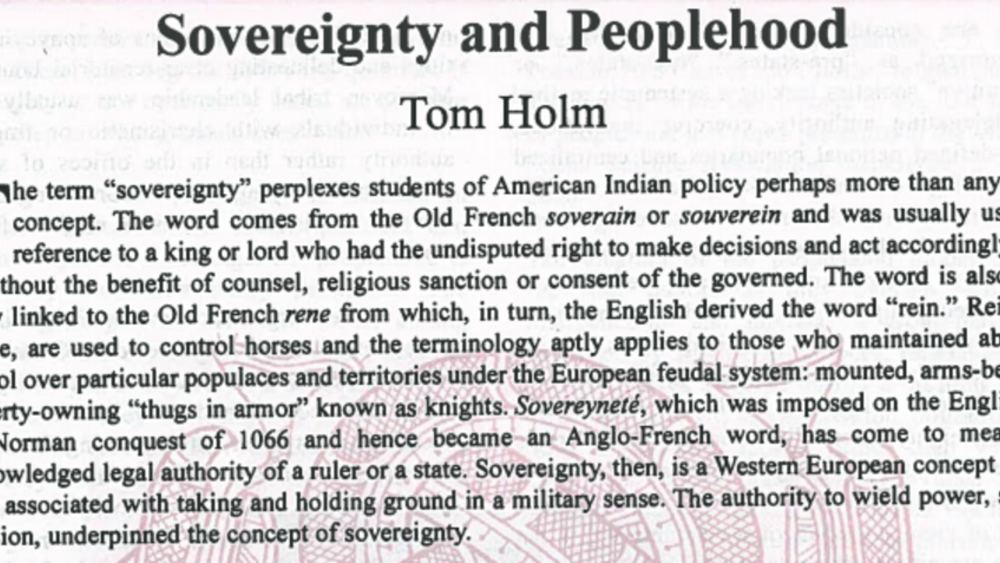
Sovereignty and Peoplehood
The term "sovereignty" perplexes students of the American Indian policy perhaps more than any other concept. The word comes from the Old French soverain or souverein and was usually used in reference to a king or lord who had the undisputed right to make decisions and act accordingly with or…
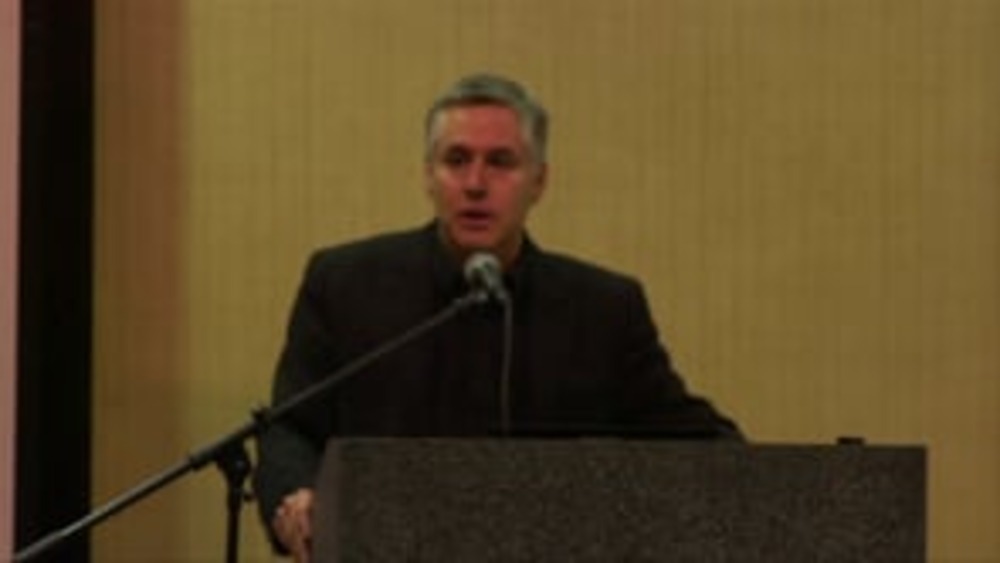
John Borrows: Anishinaabe Principles of Citizenship and Identity
University of Minnesota Law Professor John Borrows (Anishinaabe) provides an overview of how Anishinaabe people defined citizenship and identity traditionally, and how the cultural principles embedded in that traditional definition possess great power to inform laws defining tribal citizenship…
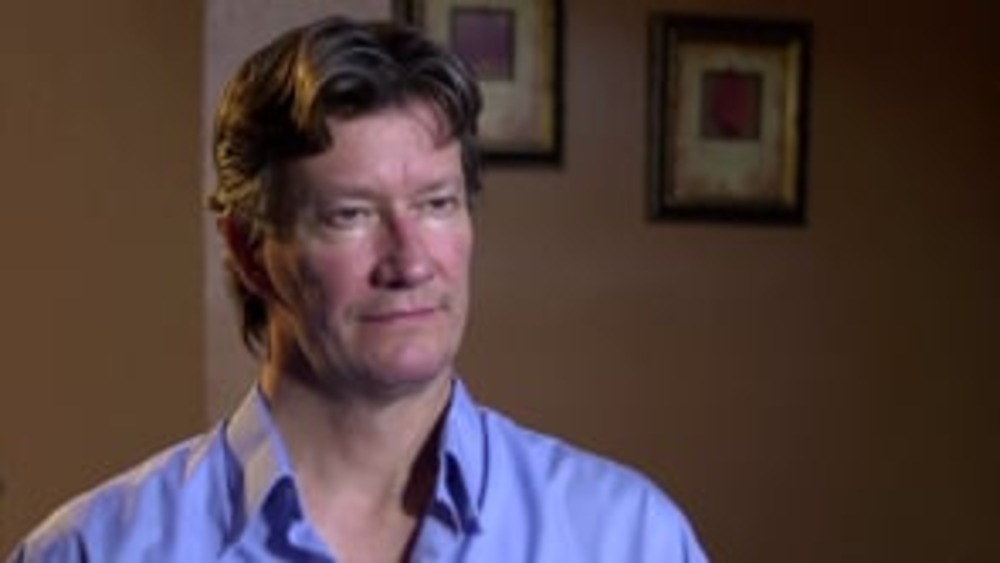
Chris Hall: Cultivating Constitutional Change at Crow Creek
Native Nations Institute's Ian Record conducted an informative interview with Chris Hall, a citizen of the Crow Creek Sioux Tribe and a member of Cohort 4 of the Bush Foundation's Native Nation Rebuilders program. Hall discusses Crow Creek's current effort to reform its constitution and the…
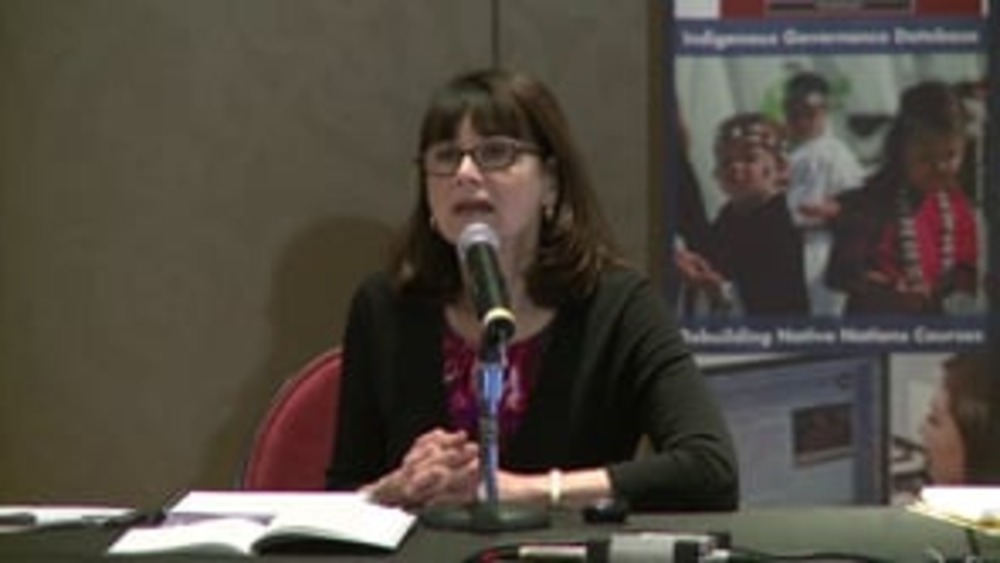
Carole Goldberg: Designing Tribal Citizenship
Scholar Carole Goldberg shares what she's learned about citizenship criteria from her extensive work with Native nations across the country, and sets forth the internal and external considerations that Native nations need to wrestle with in determining what their citizenship criteria should be.
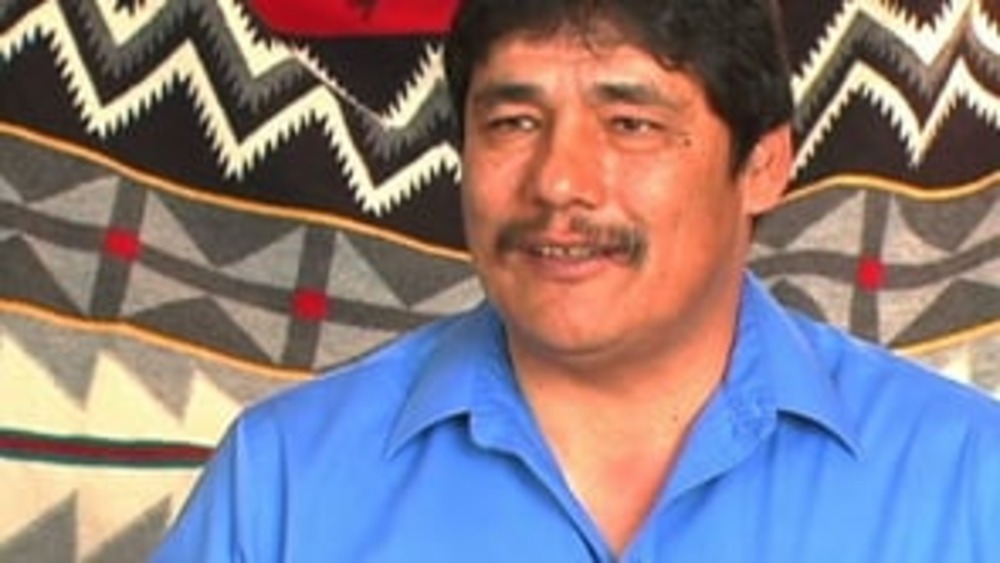
From the Rebuilding Native Nations Course Series: "Constitutions: Reflecting and Enacting Culture and Identity"
Hepsi Barnett, Frank Ettawageshik, Greg Gilham and Donald "Del" Laverdure offer their perspectives on the opportunity that constitutional reform presents Native nations with respect to reintegrating their distinct cultures and identities into their governance systems.
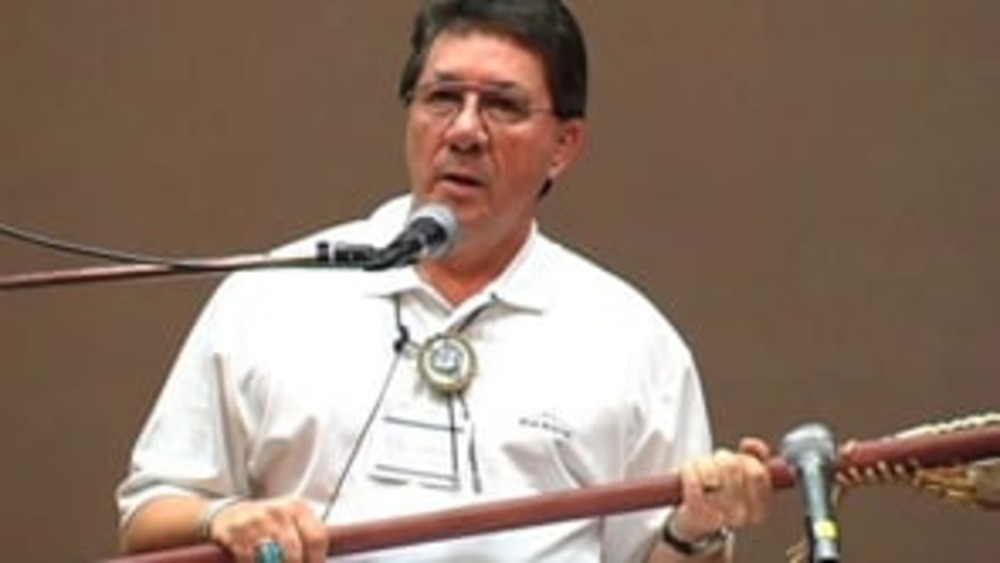
Michael K. Mitchell: Perspectives on Leadership and Nation Building
Mohawk Council of Akwesasne Grand Chief Michael K. Mitchell discusses the Akwesasne Mohawk's effort to regain control over their own affairs, and offers his advice to leaders who are working to regain jurisdiction over their lands and resources as well as rebuild their nations.

How Do We Re-Member?
On July 2, the tribal council of the Confederated Tribes of the Grand Ronde held a special meeting to allow their citizens an opportunity to testify for or against a proposed emergency enrollment ordinance whereby the Council sought to delegate its constitutional authority to involuntarily…

Disenrollment Demands Serious Attention by All Sovereign Nations
For most people, their sense of who they are–their identity–is at least partially defined from connection to others and to a community. When individuals are forced to sever those connections, the consequences can be devastating. Unfortunately, all too often in tribal disenrollment conflicts–like…
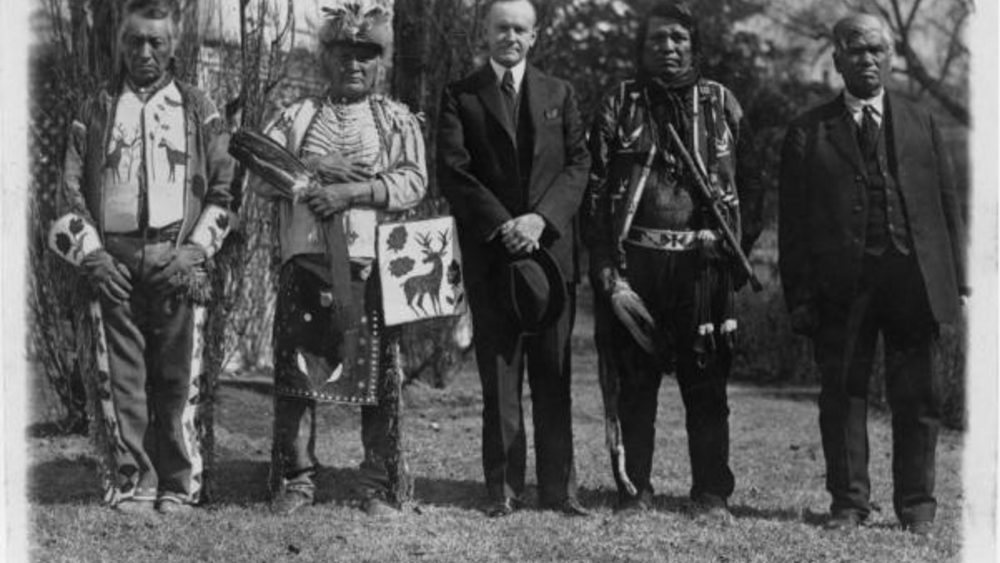
Indigenous and 21st Century Nationalisms
Indigenous Peoples live within the boundaries of nation-states but usually do not conform to the cultural, political, economic institutions and identities of their host states. Most contemporary democratic nation states are created by agreement through adoption of a constitution, which spells out…

Authenticity: Ethnic Indians, non-Indians and Reservation Indians
Authenticity is a puzzling feature of contemporary Indian life. Growing up on an Indian reservation, I rarely encountered challenges to one’s identity as an Indian person. People within the reservation community knew most of the families. If they didn’t know the family connections of a specific…

How Tribal Nations Need to Be Understood Around the World
The word “nation” is one of those words that gets thrown around haphazardly by academics, laypeople and politicians alike; it has become synonymous with “nation-state” and “state” to describe what we understand today as the global polities we refer to as countries. But there are distinctions to be…
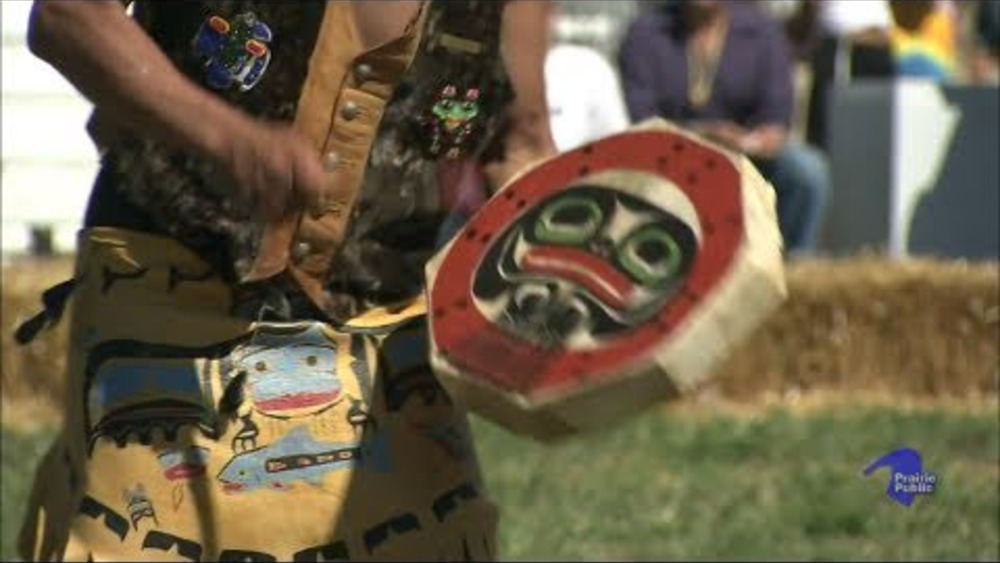
Indian Pride: Episode 102: Treaties & Sovereignty
Indian Pride, an American Indian cultural magazine television series, spotlights the diverse cultures of American Indian people throughout the country. This episode of Indian Pride features John Echohawk, Executive Director of the Native American Rights Fund, and focuses on understanding Indian…
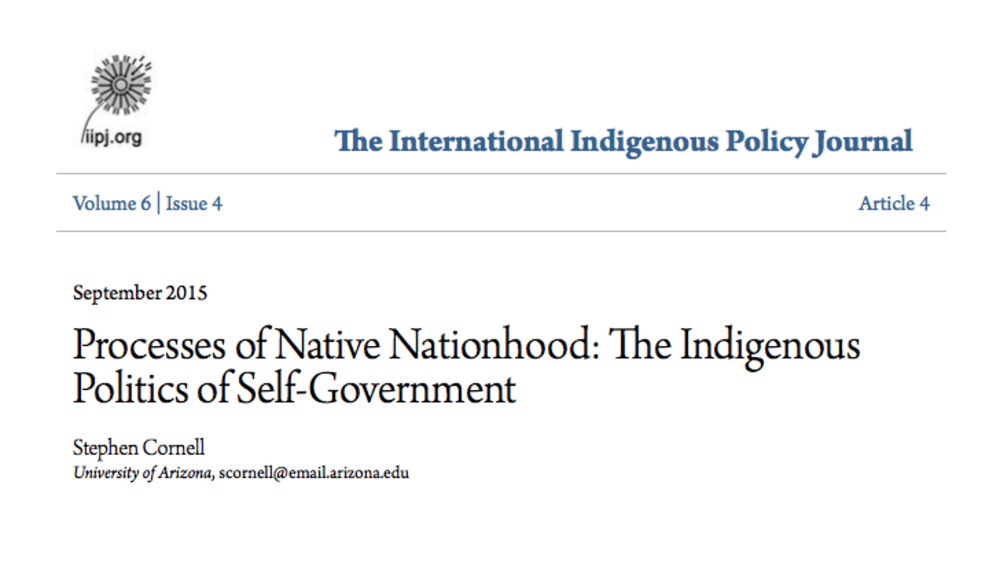
Processes of Native Nationhood: The Indigenous Politics of Self-Government
Over the last three decades, Indigenous peoples in the CANZUS countries (Canada, Australia, New Zealand, and the United States) have been reclaiming self-government as an Indigenous right and practice. In the process, they have been asserting various forms of Indigenous nationhood. This article…
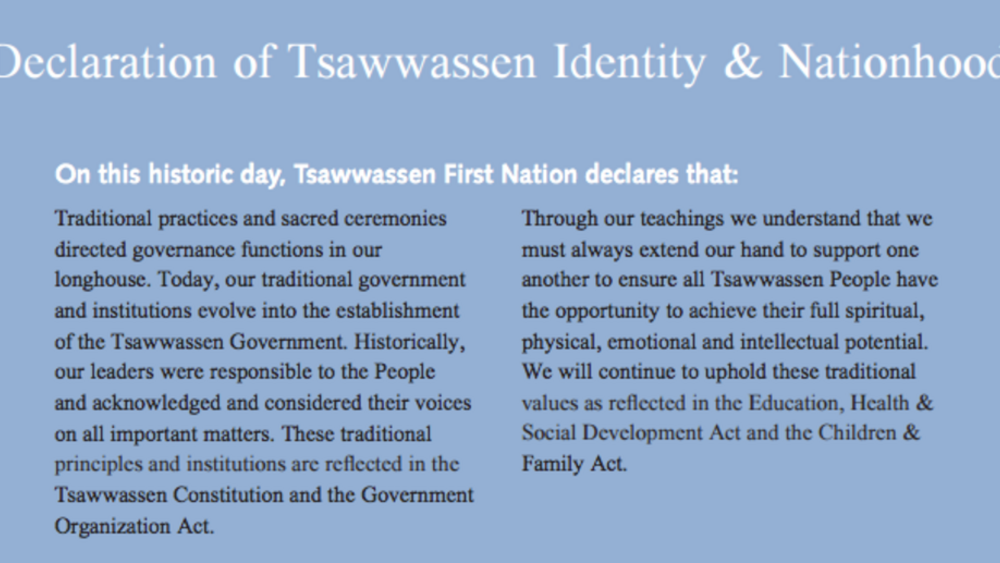
Declaration of Tsawwassen Identity & Nationhood
We are Tsawwassen People "People facing the sea", descendants of our ancestors who exercised sovereign authority over our land for thousands of years. Tsawwassen People were governed under the advice and guidance of leaders, highborn women, headmen, and speakers through countless generations...
